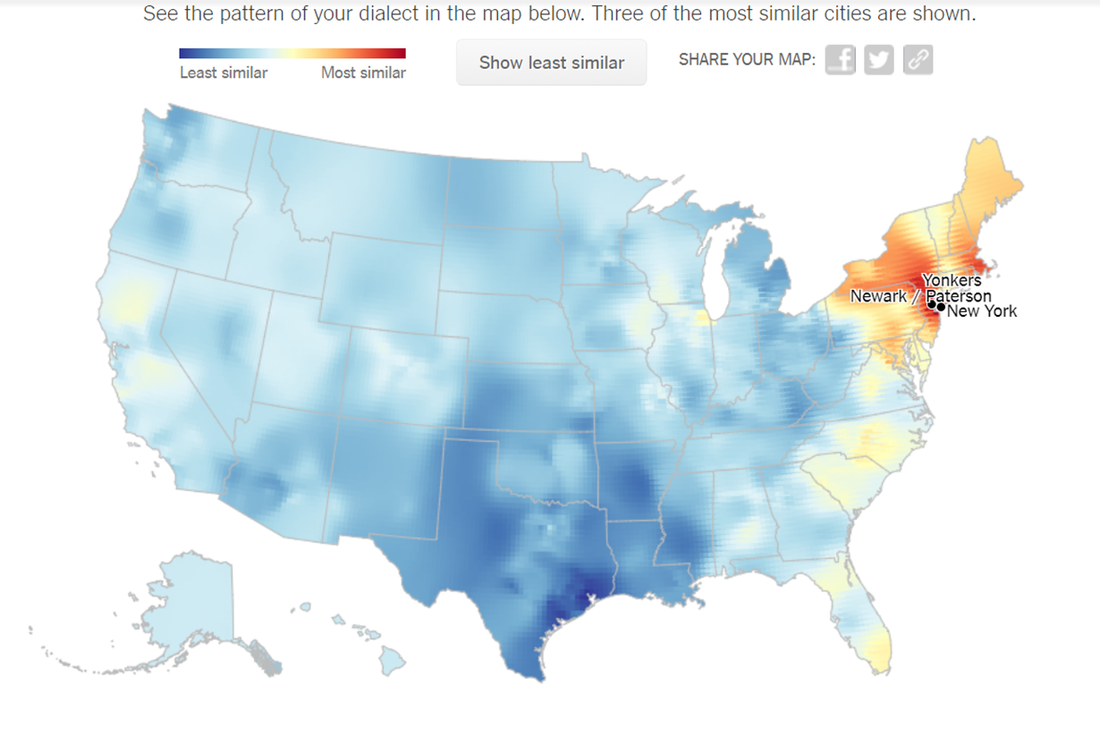|
Let’s look at more ways to sound more like a native English speaker.
Recall from Part One of this post that none of our recommendations involve losing your accent. As discussed previously, accent elimination or even marked reduction is virtually impossible for most adults (learn why). But sounding more like a native English speaker? Yes you can! In Part One, we focused on understanding idioms and what you say in your conversation (the content). Here, in Part Two, we will look at key aspects of your speaking skills, including vocabulary and grammar. Please note: In this post, I use examples from American English. Remember, the U.S. is a big place! So not all of my examples apply to different regions in America, and certainly not to the English spoken in other countries. 1. Use contractions Native English speakers in the U.S. typically use contractions when they speak.
If a native speaker doesn’t use a contraction, it’s usually for extra emphasis or clarification. For example, if you say, “I’m hungry” and your listener says, “You’re not hungry?”, you'll respond: “No, I am hungry.” Some of my clients have difficulty pronouncing certain contractions, such as I’ll. That’s ok. Don’t use it. Just say I will. But, wherever possible, use contractions to sound less formal and more local. 2. Use phrasal verbs Another way to sound less formal and more local is to use phrasal verbs. A phrasal verb is a verb made up of 2 or more words. There, I just used one: “made up” (meaning comprised.) Because phrasal verbs are more informal, English speakers tend to use them frequently in their everyday speech. Some examples:
Just like idioms, there are thousands of phrasal verbs. You don’t need to learn every one; just the most common ones used in your target English. 3. Use the local vocabulary What’s one of the top tourist phrases in any language? That’s right. “Where’s the bathroom?” But should you say “restroom”, “loo”, “WC”? It all depends on the country, or region, or even city. One of the easiest ways to sound like a native speaker is to simply use the local vocabulary. Here's an example: I am originally from New York. I call soft drinks, such as Coca-Cola, “soda”. One of my college roommates from Illinois (in the Midwest) called them “pop”. My other college roommate from Kentucky (in the South) called any soda “Coke”. Confusing, right? But that’s why it’s so important to interact with native speakers, as we suggested in Part One. It’s a surefire way to learn the local lingo. 4. Use the local pronunciation English pronunciation also varies by location. I am not referring to the accent, but things like singular versus plural, silent letters, or syllable stress. For example:
There is no right or wrong pronunciation. Again, there is just the preferred way in that region. As with vocabulary, listen to and copy how the locals say it. 5. Grammar Another key to sounding like a native English speaker is to use the grammar typically used in the area. For instance:
The grammar of our first language is deeply embedded in our brains. So even advanced English learners, who score 100% on written grammar tests, can make these minor mistakes when they speak. The good news is that these types of grammar errors don’t typically interfere with your listener’s ability to understand you. But it is a sign that English is probably not your first language. So if your goal is to sound like a native English speaker, you’ll want to try to eliminate as many of these small mistakes as you can. There is no magic pill: improvement takes dedicated time and practice. We’re here to help! If your accent is making it difficult for people to understand you, Well Said Coaching can help you gain clarity and confidence in your spoken English. If you’re not sure about your intelligibility, schedule a free consultation with us. We’ll let you know. But if you’re already easy to understand, then we hope you will embrace your beautiful accent. Instead, try some of the other approaches we suggested to sounding more like a native English speaker. Cheerio. Later. See ya. Bye for now. [How do they "goodbye" where you live?] Sometimes my clients will ask me how to pronounce a particular English word and I have no choice but to respond with the dreaded: "It depends."
It depends on the country. Or the region. Or even the city. Take a word like "Aunt", as in "My Aunt Alison is awesome." Seems simple enough, right? It's pronounced like "ant", that pesky little bugger which invades picnics. Not so fast. "Ant" is one way to pronounce "Aunt" and a very popular one at that, at least in the United States. However, in some places "Aunt" rhymes with "want" or "font". In this case, my Aunt Alison is no longer my Ant Alison, she is my Ahnt Alison. That's the pronunciation you'll hear in England, for example, and a few parts of the U.S., including the Northeastern seaboard (think Boston) and parts of the upper Midwest (Minnesota, in particular.) Data lovers: Check out this dialect splatter chart on the pronunciation of "aunt" across the U.S. If you grew up in the U.S. and are a native speaker, take this quick dialect quiz and see if the way you talk matches where you're from. Even though I moved far away from the New York area decades ago and have long lost my accent (well, mostly), my results below prove it: You can take the girl out of New York, but you can't take the New York out of the girl. Her aunt will always be an ant. |
AuthorTips and tidbits about speaking English well from Karen Schiff, founder of Well Said Coaching. Archives
February 2024
Categories
All
|


 RSS Feed
RSS Feed
